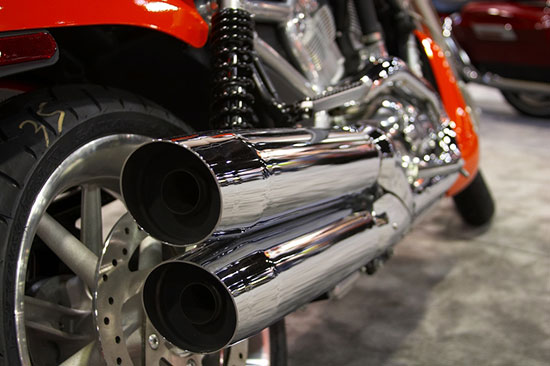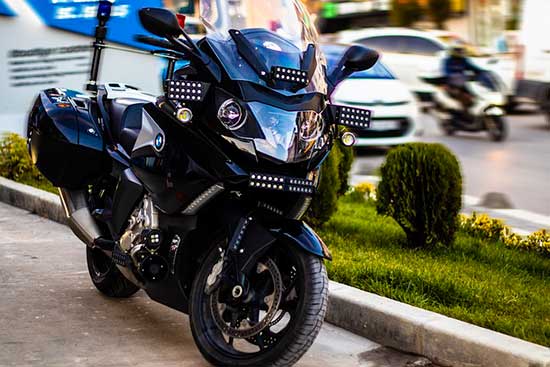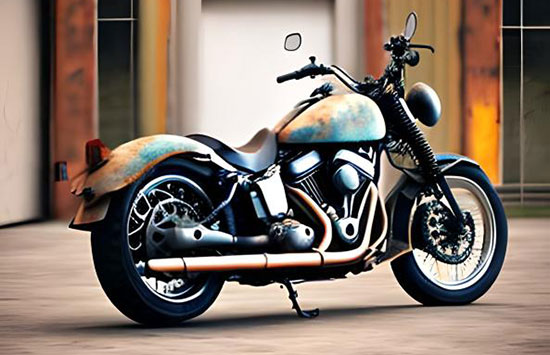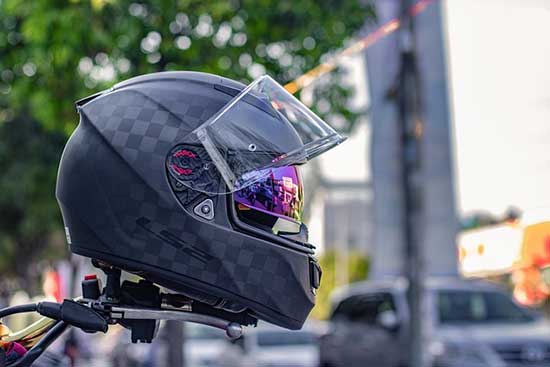Riding a motorcycle can be an exhilarating experience, but for those who wear glasses, finding a comfortable and safe helmet can be a challenge.
Glasses wearers need a helmet that can accommodate their glasses without compromising on safety or comfort.
Motorcycle helmets are crucial for protecting your head and preventing serious injuries in the event of an accident.
However, for glasses wearers, finding a helmet that fits comfortably over their glasses can be challenging.
Glasses wearers need a helmet that can accommodate their glasses while providing adequate ventilation, comfort, and protection.
In this article, we’ll discuss the best motorcycle helmets for glasses wearers, taking into account factors such as ventilation, visibility, and comfort.
We’ll also cover the different types of helmets available, including full-face, modular, open-face, and dual-sport helmets.
Whether you’re a casual rider or a seasoned motorcycle enthusiast, this guide will help you find the perfect helmet for your needs.
Contents
Why do Glasses Wearers Need Special Helmets?
Glasses wearers need a special kind of motorcycle helmet that can accommodate their glasses. Regular helmets can cause discomfort, fogging, and pressure on the nose and ears, making it difficult to ride safely and comfortably.
A helmet that fits poorly or interferes with your vision can be dangerous on the road.
A helmet designed for glasses wearers has extra space in the temples and nose area to accommodate glasses.
It also has better ventilation to reduce fogging and pressure points on the nose and ears.
Additionally, glasses-friendly helmets have anti-fog visors and are usually made of lightweight materials to reduce strain on the neck.
Factors to Consider When Choosing a Helmet for Glasses Wearers
Before you choose a helmet, there are several factors to consider, including:
1. Size and Fit
A helmet that fits properly is crucial for your safety and comfort. Look for a helmet that fits snugly but not too tight, and make sure it doesn’t interfere with your glasses.
It should also have enough room in the temple and nose area to accommodate your glasses.
2. Ventilation
Good ventilation is essential to prevent fogging and discomfort. Look for helmets with vents that allow air to flow through and keep you cool.
3. Visor
The visor should have anti-fog and scratch-resistant coatings to improve visibility and protect your eyes.
It should also be easy to operate with one hand, especially if you need to adjust it while wearing gloves.
4. Weight
A heavy helmet can cause neck strain, especially on long rides. Look for lightweight helmets that don’t put too much strain on your neck.
5. Safety Features
A good helmet should meet safety standards and provide adequate protection in case of an accident.
Look for helmets with a DOT (Department of Transportation) or ECE (Economic Commission for Europe) certification.
Best Motorcycle Helmets for Glasses Wearers
Here are some of the best motorcycle helmets for glasses wearers, including their features, benefits, and drawbacks:
1. Full-Face Helmets
Full-face helmets provide the best protection and are ideal for high-speed riding. They also offer better ventilation and some models come with a chin curtain that helps prevent wind noise and keeps your face warm in cold weather.
Here are some of the best full-face helmets for glasses wearers:
Shoei GT-Air 2
The Shoei GT-Air 2 is a high-end full-face helmet that offers excellent comfort and protection. It features a large viewport that provides good visibility and allows for a wide range of motion.
The helmet has a multi-piece EPS liner that absorbs impact energy and a chin curtain that reduces wind noise. The Shoei GT-Air 2 is available in various colors and sizes.
Bell Qualifier DLX MIPS
The Bell Qualifier DLX MIPS is a budget-friendly full-face helmet that offers excellent value for money.
It features a lightweight polycarbonate shell, a MIPS (Multi-directional Impact Protection System) liner that reduces rotational forces, and a click-release visor system that allows for quick and easy visor changes.
The helmet also has a removable and washable interior liner and is available in various colors and sizes.
2. Modular Helmets
Modular helmets offer the convenience of an open-face helmet with the protection of a full-face helmet.
They have a flip-up chin bar that allows you to easily switch between full-face and open-face modes. Here are some of the best modular helmets for glasses wearers:
Schuberth C4 Pro
The Schuberth C4 Pro is a high-end modular helmet that offers excellent comfort and protection. It features a carbon fiber shell, an anti-fog visor, and a removable and washable interior liner.
The helmet also has a built-in communication system that allows you to connect to your phone or GPS. The Schuberth C4 Pro is available in various colors and sizes.
HJC RPHA Max
The HJC RPHA Max is a budget-friendly modular helmet that offers good value for money. It features a lightweight polycarbonate shell, a sun visor, and a removable and washable interior liner.
The helmet also has a chin curtain that helps reduce wind noise and a double D-ring chin strap that ensures a secure fit. The HJC RPHA Max is available in various colors and sizes.
3. Open-Face Helmets
Open-face helmets offer a more traditional look and feel and are ideal for casual riding. They have an open design that allows for more airflow and better visibility. Here are some of the best open-face helmets for glasses wearers:
Bell Custom 500
The Bell Custom 500 is a classic open-face helmet that offers excellent style and comfort. It features a fiberglass composite shell, a padded chin strap, and a multi-density EPS liner.
The helmet also has a customizable interior that allows you to adjust the fit and comfort. The Bell Custom 500 is available in various colors and sizes.
Biltwell Gringo S
The Biltwell Gringo S is a modern open-face helmet that offers excellent protection and style. It features an injection-molded ABS shell, a hand-sewn interior liner, and a flip-up visor.
The helmet also has a double D-ring chin strap that ensures a secure fit. The Biltwell Gringo S is available in various colors and sizes.
4. Dual-Sport Helmets (continued)
that offers excellent protection and versatility. It features a fiberglass shell, an adjustable peak, and a chin bar that can be removed for better ventilation.
The helmet also has a multi-density EPS liner and a washable interior liner. The Arai XD-4 is available in various colors and sizes.
Bell MX-9 Adventure MIPS
The Bell MX-9 Adventure MIPS is a budget-friendly dual-sport helmet that offers good value for money.
It features a polycarbonate shell, a MIPS liner that reduces rotational forces, and a removable and washable interior liner.
The helmet also has an adjustable peak and a chin bar that can be removed for better airflow. The Bell MX-9 Adventure MIPS is available in various colors and sizes.
Helmet Accessories for Glasses Wearers
In addition to choosing a glasses-friendly helmet, several accessories can improve your riding experience, including:
1. Pinlock Visor Insert
A Pinlock visor insert is a clear plastic film that attaches to the inside of the visor and prevents fogging. It is easy to install and can be removed for cleaning.
2. Helmet Lock
A helmet lock allows you to secure your helmet to your bike when you’re not riding. It is a simple and effective way to prevent theft.
3. Ear Plugs
Ear plugs can reduce wind noise and protect your ears from damage. They are especially useful on long rides or when riding at high speeds.
Frequently Asked Questions (FAQs)
Can I wear my glasses inside my motorcycle helmet?
Yes, but it’s important to choose a helmet that can accommodate your glasses and doesn’t put pressure on your nose or ears.
Can I wear contact lenses while riding a motorcycle?
Yes, but it’s important to make sure your contact lenses are clean and secure before riding.
What is the difference between a DOT and an ECE-certified helmet?
DOT (Department of Transportation) and ECE (Economic Commission for Europe) are two different safety standards for motorcycle helmets.
A DOT-certified helmet meets safety standards set by the US government, while an ECE-certified helmet meets safety standards set by the European Union.
How often should I replace my motorcycle helmet?
It’s recommended to replace your motorcycle helmet every five years, or sooner if it has been involved in an accident or shows signs of wear and tear.
Are expensive helmets worth the money?
Expensive helmets usually offer better comfort, ventilation, and protection than budget-friendly helmets.
However, the most important factor is choosing a helmet that fits properly and meets safety standards.
Conclusion
Finding the best motorcycle helmet for glasses wearers can be challenging, but it’s essential for your safety and comfort on the road.
Consider factors such as size, ventilation, and visor when choosing a helmet, and don’t forget to invest in accessories such as Pinlock visor inserts and helmet locks.
By following these tips, you’ll be able to find the perfect helmet for your needs and enjoy a safe and comfortable ride.






